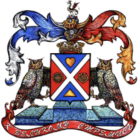A Businessman’s Life in The Island of Cyprus
Two years after the haircut in March, 2013, all restrictions on the movement of capital have been lifted. What does this mean for a foreign investor?
Certainly the consequences of the haircut, including the restrictions on capital movement, complicated business transactions and created barriers for potential foreign investors. However, it is my belief that any measures taken will ultimately help the Cyprus economy to become stronger. Cyprus has always been a very attractive place for investments and I think that this can only be perceived as a positive development which translates to the reestablishment of stability and steady return to normality. I have to admit that for me as an investor it is a great pleasure to see how quickly the country I chose as my business base rebounded and is getting back on track.
Your business activities on the island grew at the peak of the crisis. First of all, why did you remain in Cyprus?
Cyprus is a very dear place for me. It’s my second home. A few years back, I identified and chose this island as the ideal place to raise my children and at the same time gives me the flexibility to take care of all my business activities internationally. My company is committed to Cyprus as its base of operations, something which has not changed in light of these recent developments. On a personal level, I appreciate the local mentality here very much. My family is very important to me and I know that this is the case for all Cypriots. Being family-oriented is a core value that is pretty rare to find nowadays especially in the business world. You see, when you’re spending half your life in an environment that by default lacks emotion and sensitivity, you need to find other ways to maintain life balance. I am very thankful for the locals’ open-mindedness and multiculturalism. Cypriots are very friendly and very welcoming towards expats which helps foreign families to adapt easily and familiarize themselves with their new home. Their warm idiosyncrasies reflect the island’s year-long sunny weather which adds up to the great quality of life one finds here.
Secondly how do you evaluate Cyprus’s position as an international business center? Do you think the country sustains its dynamics?
Admittedly, Cyprus’s image as an international business center has taken a hit after March, 2013. However, based on what I have witnessed during my many years here, I am very confident of the country’s potential and its ability to easily restore its credibility eliminating any negative perceptions. A crisis is the time for “winners” to thrive. As it’s their time to show their true strength by turning their disadvantages into advantages and grow. The truth is that the country still has many advantages to offer, including a very talented and hardworking workforce and a perfect geographical position at the crossroads of Europe and the Middle East.
What would you advise the Cypriot political and business system to consider so as helping the country become even more competitive?
The most important thing at the moment is to reposition Cyprus as a financial business center. Both the political and the business community need to prove that Cyprus still offers the prerequisites to emerge even stronger from the current crisis, both as an overall economy and as a business center. If I had to identify a current weakness, I would have to say bureaucracy is an issue that should be addressed. Long waiting periods can be a deal breaker for investors. Let’s not forget that business is a fast-paced world where every professional needs to be ahead of their game. There is no time to waste and therefore you can’t afford to wait. Therefore, corporate and legal procedures could be expedited to make an investor’s experience more pleasant.
The stock exchange witnessed a major disruption affecting companies offering trading services like yours. What is the current situation?
In one form or another, all industries have been affected by these events. From my personal perspective, I am committed to the growth strategy that I have initiated. In my many years of business, I have come across several major crises in the financial markets, while my partners and associates have also dealt with crises of a similar nature and are well-prepared for any scenario that may arise. After all, forex itself was born out of a financial crisis. What I have taken away from these experiences, is that any business can excel even in the most adverse of circumstances, as long as certain core values remain. At the center of our operations lie our clients and so we strive to continue offering them a regulated and flexible trading experience using cutting-edge technology and exceptional service by our well-experienced and knowledgeable personnel.
A lot of things remain uncertain in the world economy, with the developments in the Middle East, the Ukraine crisis and the fluctuation in gas prices. How likely is it to experience a period of intense fluctuations in the markets in the near future?
Undeniably, the currency market is volatile as it is exciting, and consequently breaking news have the power to transform the market completely. For example, the Russian-Ukraine crisis has had a domino effect on the Russian ruble as well as on the Euro and the US dollar. This is not necessarily a bad thing – this means that the markets are operating like true open markets and responding accordingly to what is happening around them. That is why it is important to understand that robust risk management policies are essential and probably one of the most valuable elements of the industry. In that sense we can never get too comfortable with the current situation and we should aim to focus on accurate forecasting and effective preparedness for every possible scenario.
Note: The content of this interview comprises personal opinions and ideas and should not be taken or misunderstood as investment advice.
